In one of the most ambitious book review projects I’ve ever tried, I spent hours scouring various year-end best books lists, from review journals (School Library Journal, Booklist), mainstream media (The New York Times, Entertainment Weekly), book retailers (Barnes & Noble, Amazon) and public opinion (GoodReads).
I then compiled all of these best of lists into a single spreadsheet — more than 350 books — counting the number of times each title appeared. Out of 12 review sources, most books only showed up once; about 100 appeared on more than one best books lists. The books featured in our Top 10 each appeared on at least six lists.
Only one title appeared on all 12 best lists, a remarkable achievement for what we are calling this year’s best book, #1 on our list of the Top 10 Books of 2012!
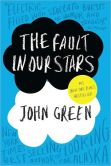
#2 — Behind the Beautiful Forevers: Life, Death, and Hope in a Mumbai Undercity by Katherine Boo (Nonfiction) — From Pulitzer Prize-winner Katherine Boo, a landmark work of narrative nonfiction that tells the dramatic and sometimes heartbreaking story of families striving toward a better life in one of the twenty-first century’s great, unequal cities. “[Boo] is one of those rare, deep-digging journalists who can make truth surpass fiction, a documentarian with a superb sense of human drama. She makes it very easy to forget that this book is the work of a reporter.” — Janet Maslin, The New York Times
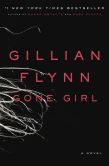
#4 — Bring Up The Bodies by Hilary Mantel (Fiction) — The sequel to Mantel’s 2009 Man Booker Prize winner Wolf Hall delves into the heart of Tudor history with the downfall of Anne Boleyn. Though he battled for seven years to marry her, Henry is disenchanted with Anne. She has failed to give him a son and her sharp intelligence and audacious will alienate his old friends and the noble families of England. When the discarded Katherine dies in exile from the court, Anne stands starkly exposed, the focus of gossip and malice. “Astringent and purifying, stripping away the cobwebs and varnish of history, the antique formulations and brocaded sentimentality of costume drama novels, so that the English past comes to seem like something vivid, strange and brand new.” — Charles McGrath, The New York Times Book Review
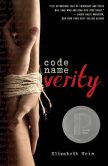
#6 — Wild: From Lost to Found on the Pacific Crest Trail by Cheryl Strayed (Nonfiction) — At twenty-two, Cheryl Strayed thought she had lost everything. In the wake of her mother’s death, her family scattered and her own marriage was soon destroyed. Four years later, with nothing more to lose, she made the most impulsive decision of her life: to hike the Pacific Crest Trail from the Mojave Desert through California and Oregon to Washington State—and to do it alone. She had no experience as a long-distance hiker, and the trail was little more than “an idea, vague and outlandish and full of promise.” But it was a promise of piecing back together a life that had come undone. “Clinging to the books she lugs along — Faulkner, Flannery O’Connor, Adrienne Rich — Strayed labors along the demanding trail, documenting her bruises, blisters, and greater troubles. [Her] chronicle, perfect for book clubs, is certain to spark lively conversation.” — Colleen Mondor, Booklist
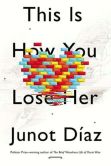
#8 — Billy Lynn’s Long Halftime Walk: A Novel by Ben Fountain (Fiction) — In this finalist for the National Book Award, intense warfare with Iraqi insurgents has transformed the eight surviving men of Bravo Squad into America’s most sought-after heroes. Now they’re on a media-intensive nationwide tour to reinvigorate support for the war. On this rainy Thanksgiving, the Bravos are guests of the Dallas Cowboys, slated to be part of the halftime show. Surrounded by patriots sporting flag pins on their lapels and Support Our Troops bumper stickers, Bravos Specialist Billy Lynn is thrust into the company of the Cowboys’ owner and his coterie of wealthy colleagues. Over the course of the day, Billy will drink and brawl, yearn for home and mourn those missing, face a heart-wrenching decision, and discover pure love and a bitter wisdom far beyond his years. “A masterful echo of Catch-22, with war in Iraq at the center. There’s hardly a false note, or even a slightly off-pitch one, in Fountain’s sympathetic, damning and structurally ambitious novel.” — Jeff Turrentine, The Washington Post
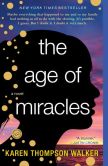
#10 — The Passage of Power: The Years of Lyndon Johnson, Volume 4 by Robert A. Caro (Nonfiction) — The fourth volume in Caro’s ambitious biography of Lyndon Johnson follows the former President through both the most frustrating and the most triumphant periods of his career — 1958 to 1964. It is a time that would see him trade the extraordinary power he had created for himself as Senate Majority Leader for what became the wretched powerlessness of a Vice President in an administration that disdained and distrusted him. Yet it was, as well, the time in which the presidency, the goal he had always pursued, would be thrust upon him in the moment it took an assassin’s bullet to reach its mark. “Caro combines the skills of a historian, an investigative reporter and a novelist in this searching study of the transformative effect of power.” — Wendy Smith, Los Angeles Times
